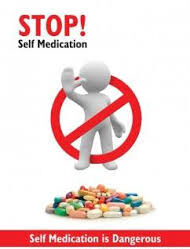By Aulah Najjuuka
While self-medication can sometimes be a practical response to minor ailments, it’s important to distinguish between responsible and irresponsible self-medication. Responsible self-medication involves using over-the-counter drugs in moderation and for recognised symptoms, such as taking paracetamol for a headache. On the other hand, non-responsible self-medication — using drugs without proper diagnosis or professional guidance — can lead to dangerous consequences, including severe side effects, drug resistance, and even fatal outcomes.
Dr. Christine Namatovu, the acting director of UCU’s Allan Galpin Health Centre, cautions against the growing trend of irresponsible self-medication among students. “Many students think they know their bodies well enough to treat themselves, but this is a dangerous assumption. What may seem like a minor issue could be masking something far more serious. Self-medicating without proper guidance can lead to drug misuse, harmful interactions between medications, or even an overdose,” she warns.
This comes on the heels of the loss of Lillian Kampi, a second-year UCU nursing student. While by press time the postmortem report which would show the cause of her death, had not yet been released, it is suspected that Kampi died due to medication she was taking for an ailment, without proper diagnosis of what was ailing her.
For another student, the consequences of self-medication made her condition worse. Shaminah Atuhaire, a third-year Business student (BBA3), shares: “I was dealing with a persistent cough and decided to take antibiotics that I had left over from a previous illness. Instead of getting better, I developed a severe allergic reaction that sent me to the emergency room. It was a terrifying experience, and I now realise how risky it is to take matters into my own hands without consulting a professional.”
Irresponsible self-medication comes with several dangers, many of which are not immediately obvious but can have long-term or even life-threatening consequences. Below are some of the most serious risks associated with self-medicating without professional guidance as shared by Dr Namatovu.
1. Incorrect diagnosis
One of the biggest risks of self-medication is mistaking one illness for another. Symptoms like headaches, fevers, or fatigue can be caused by a wide range of conditions, from minor colds to more serious diseases like malaria or even meningitis. Without a proper diagnosis, a person might treat the wrong condition, worsening the underlying issue or delaying necessary medical attention.
2. Drug interactions
Many students and people are unaware that certain drugs can interact negatively when taken together. Mixing prescription drugs with over-the-counter medications, or even combining different over-the-counter remedies, can lead to harmful side effects. This is particularly dangerous when medications are taken without knowing their chemical composition or potential interactions with other drugs.
3. Development of drug resistance
Improper use of antibiotics is one of the leading causes of antibiotic resistance, a growing public health crisis. When antibiotics are used incorrectly either by taking the wrong dosage or by not completing a prescribed course bacteria can become resistant, making future infections more difficult, if not impossible, to treat. Dr. Namatovu stresses, “Students who misuse antibiotics are contributing to a global issue. Over time, the drugs we rely on to fight infections may no longer be effective.”
4. Overdose and toxicity
Overdosing on medications is another serious danger of self-medication. Students may mistakenly believe that taking a higher dose will speed up recovery, but this can lead to poisoning or toxic build-up in the body. Common painkillers like paracetamol or ibuprofen, when taken in excess, can cause liver damage, kidney failure, or even death.
5. Allergic reactions
Self-medication can result in unexpected allergic reactions. These reactions can range from mild symptoms, such as rashes or itching, to more severe conditions like anaphylaxis which is a severe, potentially life-threatening allergic reaction, that requires immediate medical attention. Without knowing whether you’re allergic to a particular drug, taking it unsupervised can be dangerous.
6. Masking serious conditions
Self-medicating can sometimes mask the symptoms of a more serious underlying condition. For instance, painkillers might temporarily relieve headaches or body aches, but these symptoms could be a sign of a deeper issue such as an infection or tumour. By self-medicating, you may delay seeking proper medical care, allowing a treatable condition to worsen.
7. Dependence and abuse
Another concern with self-medication is the risk of dependence, especially with drugs that can be habit-forming. Painkillers, sleep aids, and anxiety medications can all lead to physical or psychological dependence if used improperly. Regular use without medical supervision increases the risk of addiction, which can lead to further health complications and disrupt daily life.
“We understand that students often resort to self-medication out of convenience or financial concerns, but we urge them to use the health facilities available. The Allan Galpin Health Centre is here to help, and we have trained professionals who can diagnose and prescribe the appropriate treatment. Don’t gamble with your health,” Dr. Namatovu stresses.
As more students balance academic pressures and personal challenges, the temptation to self-medicate can be strong. However, as Dr. Namatovu emphasizes, accessing professional care is the safest path. Students are encouraged to visit the Allan Galpin Health Centre when they’re feeling unwell, rather than trying to treat themselves. The center offers comprehensive care that could prevent the tragic consequences of irresponsible self-medication.


